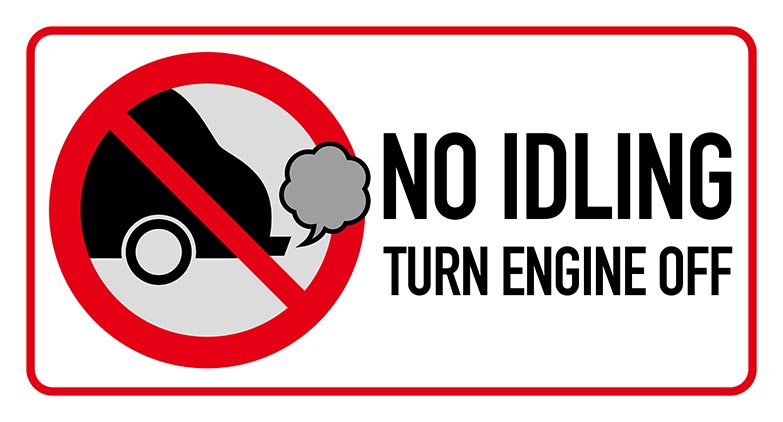Idling Vehicles: How Bad is it for Your Car?
Letting your car sit and idle in the parking lot or outside your home might not seem like an issue. In the past, you were told to idle your vehicle to “warm” the engine. In theory, this act helped prime your vehicle and make it safe for driving. While the old engines might have required a warm up, the modern engine in your car does not.

In fact, idling your vehicle might add to repair costs later along with other serious disadvantages.
WHY IDLING A VEHICLE IS NO LONGER A GOOD IDEA
Today, you have no reason to idle your car except when you are driving and waiting at a stoplight or stuck in traffic. Not only is there a significant downside in terms of engine wear, but also, the impact on your fuel consumption should be your top consideration; especially if you want to save money every month.
Here is what happens when you let your vehicle continue to idle:
You Add Wear and Tear to Your Engine: Your modern car engine only requires a few seconds to idle before it can be driven around. By the time you start the engine, adjust mirrors, and get on your seatbelt, your vehicle is ready to move. Leaving your vehicle idling damages the engine and causes excess strain. In turn, you see an increased need for repairs.
You Drain the Battery: Your vehicle’s battery is much more advanced today. These cars now use less power per start and have a higher power reserve. Starters are stronger and more reliable. When you start your vehicle and idle it, you drain your vehicle’s battery; especially if you leave the radio and air conditioner on too.
Waste of Gas & Money: Idling, even for ten seconds, wastes more gas than turning off the engine and restarting when you are ready to drive again. Today’s engines and starters take very little fuel to get going, but idling consumes fuel rapidly.
Carbon Emissions: Leaving your vehicle idling allows it to contribute to the growing number of carbon dioxide emissions from your exhaust. Carbon emissions are a known cause of global warming. Do your part and be a responsible citizen as you take your wheels out on the road.
Increased engine wear: Idling adds miles to your odometer even when you’re not going anywhere. Moreover, it causes friction and wear on the internal parts like pistons and rings.
Incomplete combustion: When you idle your vehicle, the engine doesn’t work fully (like while driving), and the fuel doesn’t burn fully as well. This leaves behind unburned gas and soot that clogs the engine components, including spark plugs and injectors.
The Effects of Idling for More than an Hour
Idling for extended periods, such as more than an hour, can have severe consequences on your engine. It leads to increased wear and tear on engine components, including the cylinders, pistons, and valves. Continuous idling can also lead to overheating, as the engine isn’t operating at its optimal temperature range. This can cause damage to various engine parts and reduce overall engine lifespan.
ENSURE AUTO REPAIRS IN BC FROM A CENTRE YOU CAN TRUST
The team at Minit-Tune & Auto Brake Centres understands the confusion about idling and gas mileage. Not only can we help you better understand the needs of your vehicle, but we will also repair the damage done from excessive idling.
Bring your vehicle in for auto repairs or its regular maintenance appointment. While not idling does your part to protect the environment, keeping your car in top shape ensures maximum performance and fuel economy too.
To schedule an appointment for repairs or maintenance, find a location near you. If you have questions about our auto repairs in Vancouver and its surrounding cities, contact a centre in your area.
MINIT-TUNE BLOG
Minit-Tune & Brake Auto Centres Address Common Issues
Here at Minit-Tune & Brake Auto Centres in British Columbia, we’re always pleased to help our customers get the most out of their cars and trucks. To that end, we’ll add a relevant blog topic from time to time to keep you up to date and getting the most out of your vehicle.
